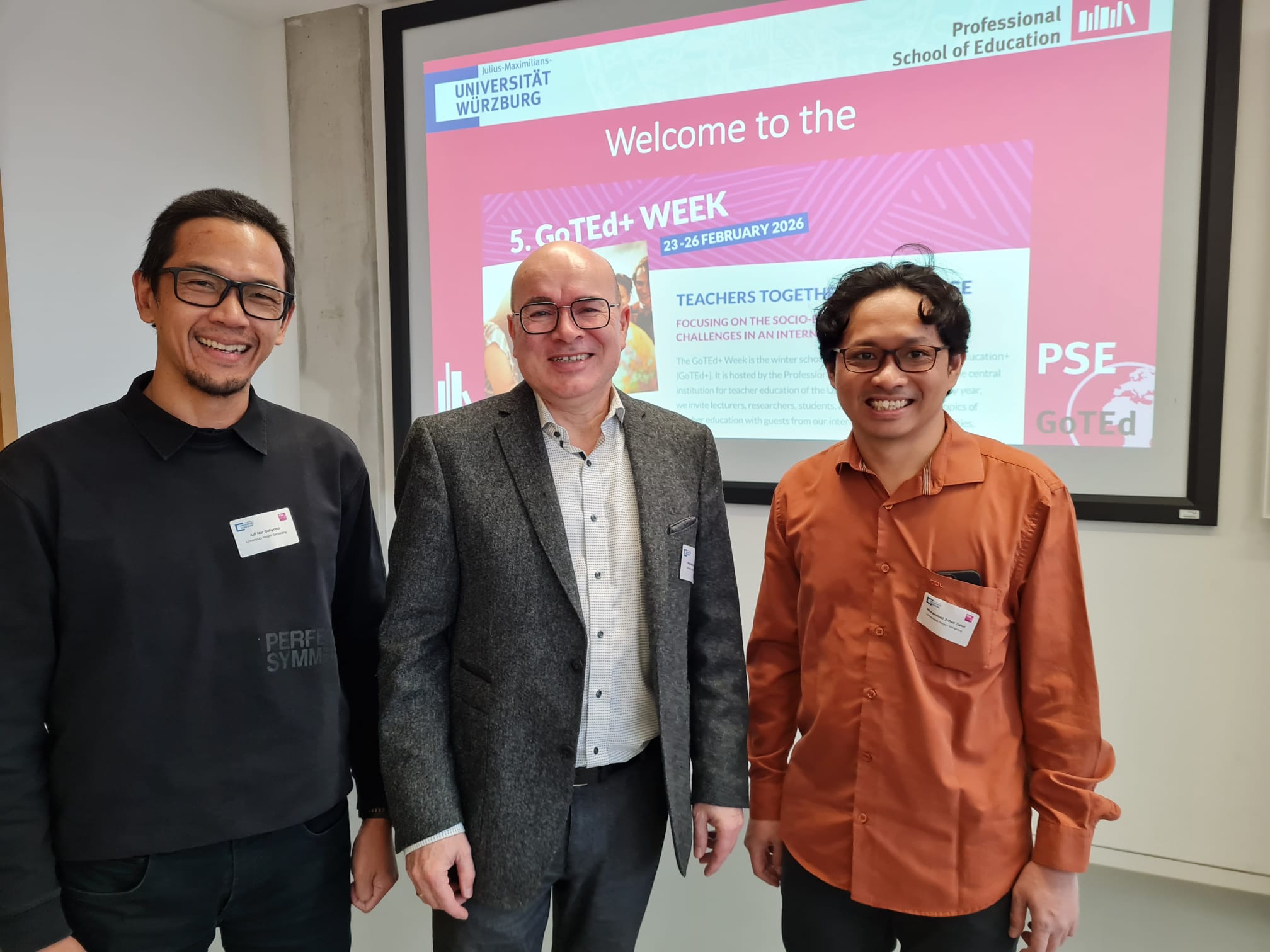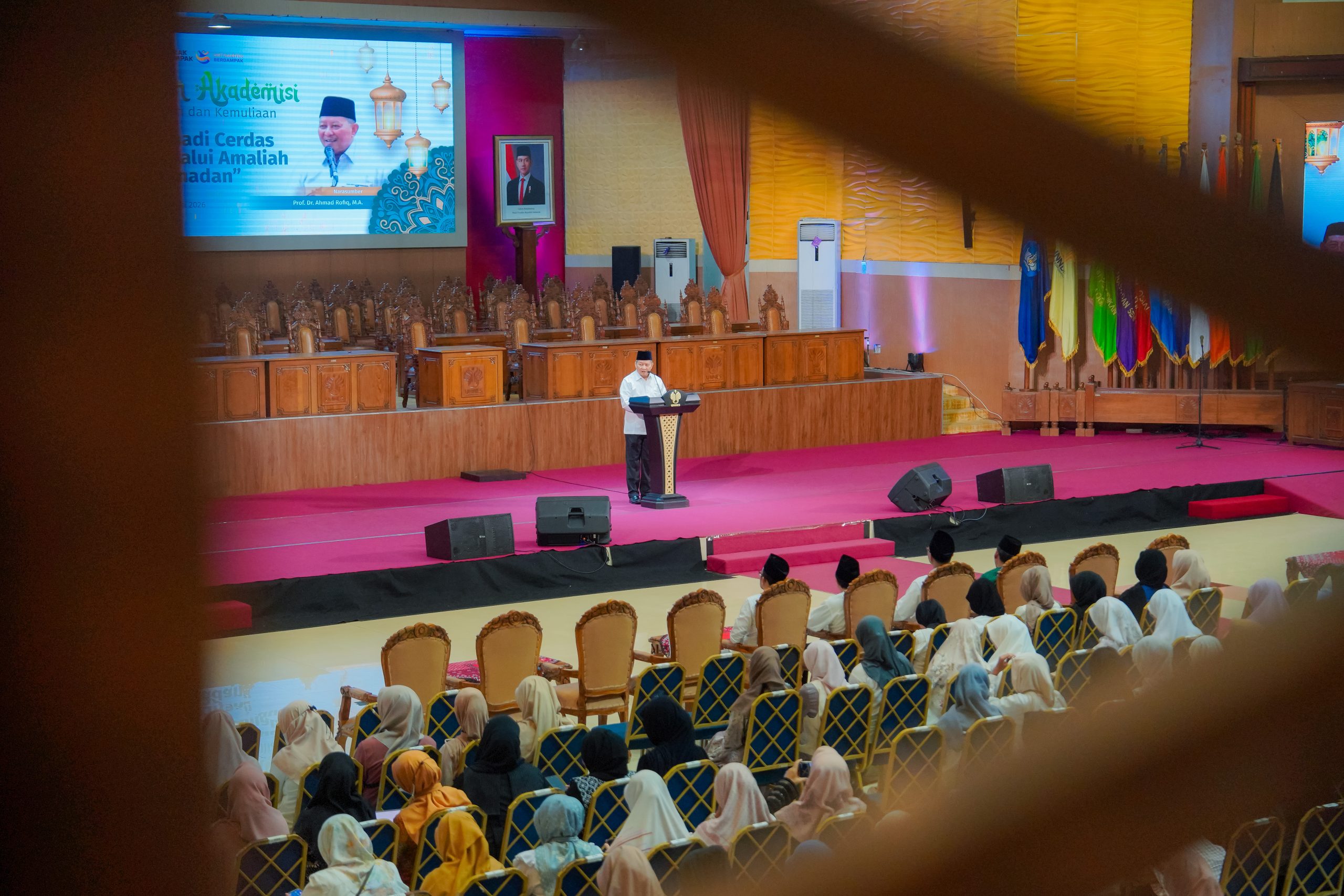Sistem informasi yang terkait dengan remunerasi yang sudah berjalan di Universitas Negeri Semarang (UNNES) menjadi acuan beberapa perguruan tinggi.
Kali ini Universitas Negeri Makasar (UNM) melakukan kegiatan Studi Banding (Benchmarking) ke Universitas Negeri Semarang (UNNES). Kunjungan ini untuk mempelajari sistem informasi yang terkait dengan remunerasi yang sudah berjalan di UNNES, Selasa (8/6).
Didampingi Wakil Rektor Bidang Umum dan Keuangan UNM dan Tim remunerasi UNM, Rektor UNM Prof Dr Ir H Husain Syam MTP IPU menyampaikan UNNES merupakan perguruan tinggi BLU yang menjadi acuan bagi perguruan tinggi BLU lainnya untuk sharing informasi dan berbagi pengalaman dalam implementasi remunerasi.
“UNNES merupakan tempat belajarnya perguruan tinggi BLU untuk sharing informasi dan berbagi pengalaman dalam implementasi remunerasi. Saya kira Tim UNM tepat datang ke UNNES untuk belajar.” tutur Prof Dr Ir H Husain.
Selain itu, Rektor UNM menyampaikan Tim UNM akan belajar di UNNES selama dua hari demi mendalami sistem remunerasi dan implementasinya.
“Masukan dan saran dari UNNES akan kami terapkan di kampus kami. Terimakasih Pak Rektor UNNES Prof Dr Fathur Rokhman MHum sahabat saya,” jelas Rektor UNM.
Rektor UNNES Prof Dr Fathur Rokhman MHum menyampaikan UNNES sebagai salah satu Perguruan Tinggi Negeri BLU yang telah menerapkan remunerasi sejak tahun 2014, dan menjadi lembaga yang terbaik dalam sistem remunerasi.
“Sudah ada 47 perguruan tinggi yang belajar sistem informasi dan remunerasi di UNNES. Kami bersyukur karena sistem yang kami bangun kini sudah tertata, untuk itu kami akan berbagi ilmu informasi kepada siapapun yang membutuhkan. Sebab berbagi ilmu itu tidak habis malah bertambah,” tutur Prof Fathur.
Selain itu, Prof Fathur menjelaskan sistem remunerasi UNNES berbasis Teknologi Informasi (IT) sehingga setiap aktivitas pegawai direkam melalui berbagai aplikasi, dan output dari aplikasi-aplikasi tersebut menjadi data dalam proses perhitungan remunerasi.
“Implementasi sistem remunerasi sepenuhnya berbasis teknologi informasi yang bisa merekam aktivitas pegawai dan aktivitas tersebut terekam dalam aplikasi Sistem Informasi Remunerasi (Siremun),” jelas Prof Fathur.
Prof Fathur berharap kegiatan ini dapat meningkatkan kerjasama yang baik dalam pengembangan sistem informasi baik akademik maupun non akademik yang akan dikembangkan di UNM nantinya.



